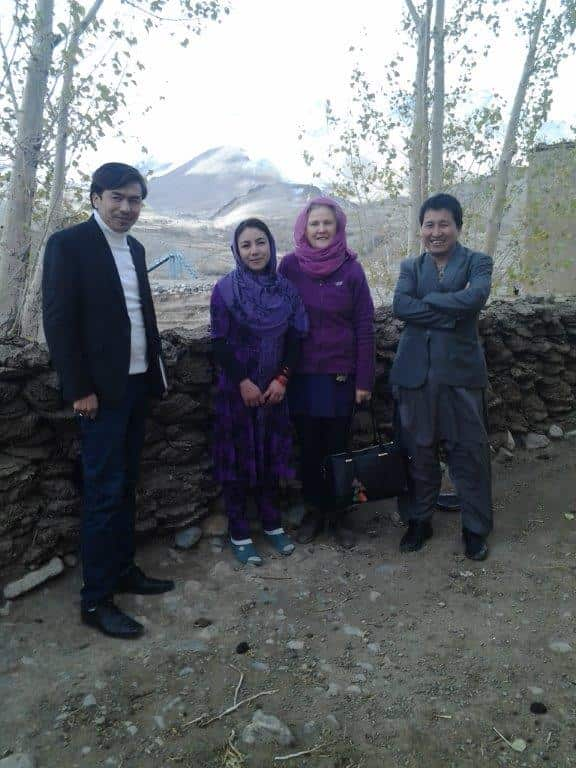Insight talks to four people who had very different hostage experiences about how they coped during, and after, the ordeal. Held Hostage, Tuesday, Oct. 6 at 8:30pm on SBS and On Demand.
It was April 2016 when Kerry Jane Wilson was staying overnight in Jalalabad in eastern Afghanistan. She’d been living and working as an aid worker, mainly in the capital, Kabul for the last 20 years, and would often wake early to read and enjoy the cooler, morning temperatures. On this particularly hot morning, she was a few chapters into her book, when her life took an unexpected turn.
“About five o'clock…a group of three men burst into my bedroom and they said they were security and they looked like security and it's a bit unusual to break into somebody's bedroom at five o'clock in the morning,” she recalled.
She quickly realised the men weren’t security but there to take her.
“Before I knew it, they had actually blindfolded me and put plastic handcuffs on me and whisked me out of the room and into the boot of a car,” the 67-year-old said.
Still dressed in her pyjamas, she was driven to another location outside of Jalalabad.
“I was terrified. I mean so terrified that I don't think that it's possible to really think when you're that terrified, not unless you're well trained,” she told Insight.
She was taken to a house in a Taliban controlled area of Afghanistan. Inside she was surprised by the first words of one of her kidnappers.
“I was sitting there on the floor,” she said. “He put his long bony hand on my head and he said in Dari, ‘don't worry, nothing's going to happen.’”
However, the aid worker was far from safe. She soon learnt that her kidnappers weren’t from the Taliban, but criminals wanting a big pay day by taking a foreigner.

“The kidnapper told me a number of times, ‘don't make a sound, don't make any noise at all. If you make any noise these people here will kill you’ and I believed him that that was true,” she said.
In the following months, the kidnappers began to negotiate with Wilson’s family for a ransom to be paid. During this time she was kept in a guarded room, sitting down and chained to the wall. Despite it being painfully uncomfortable at times, one of the biggest challenges was stopping her mind from wandering to dark places.
“My kidnappers were always threatening me, ‘you're very lucky that we're protecting you because if we give you to Daesh, you know what they'll do with you. They will sell you for sex and they will kill you.’” she said.
To fill the long days and stay somewhat positive, she would recall the hundreds of books she’d read in her life.
“I had quite a big library but I'd read all the books maybe 50 times so I read the books again in my head,” she said. “I went through every book I could remember and then after about three weeks, I think, I had to start again and again. I think I went through them all about five times by the time I was released.”
I think humans basically, if they're locked up together like that, they do develop some kind of an understanding.
Wilson said she was never sexually or physically abused, and while she didn’t bond with her kidnappers, she said she began to understand them.
“The one who had originally told me don't worry…he was praying more than five times a day. He kept telling me in sign language how much he missed his wife and his children and I could see that he was afraid that he would never see them again,” she recalled.
“I think humans basically, if they're locked up together like that, they do develop some kind of an understanding.”
After four months of being held captive, a ransom was paid for Wilson’s release. She decided to return to Australia which brought another set of challenges after living and working in developing countries for much of her life.
“Integration is very difficult because I felt nobody knew who I was,” she said.
“They would look at me and say, ‘I hope you're never going back to that dreadful country again’ which is a dismissal of my career, my beliefs, my life, who I am, and there was nothing really I could say but just smile and grit my teeth. So it's a very difficult process.”
Kerry now works for Hostage International – an organisation which helps former hostages and their families.
Insight is Australia's leading forum for debate and powerful first-person stories offering a unique perspective on the way we live. Read more about Insight
Have a story or comment? Contact Us


